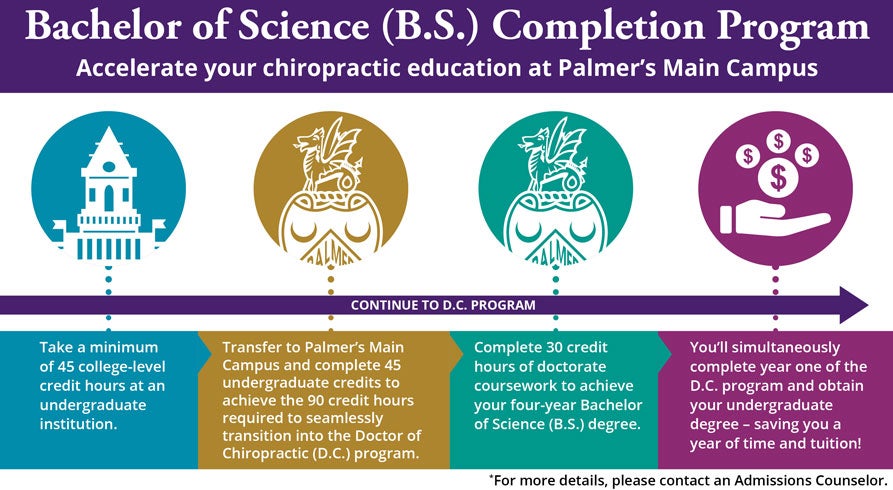
How many credits do you need for a bachelor’s degree? This question is a common one for aspiring college students and those seeking to complete their undergraduate education. The number of credit hours required for a bachelor’s degree can vary significantly depending on the institution, major, and program type. Understanding credit requirements is crucial for planning your academic journey and ensuring you graduate on time.
Credits represent the units of academic work completed, typically earned through coursework, internships, research, and other approved activities. The concept of credit hours is essential for understanding your academic progress and determining your eligibility for graduation. While most bachelor’s degrees require around 120 credit hours, this number can fluctuate based on various factors. For instance, some majors may require additional coursework, while others may offer opportunities to earn credits through alternative methods.
Understanding Credit Requirements: How Many Credits Do You Need For A Bachelor’s Degree

Earning a bachelor’s degree involves completing a set number of credit hours, which represent the amount of academic work you’ve done. These credits are crucial for graduation, and understanding how they work is essential for planning your academic journey.
Credit Hours Explained
Credit hours are a standardized unit used to measure the amount of time and effort required to complete a course. Each course is assigned a specific number of credit hours, which typically reflects the number of weekly class hours and the workload outside of class, such as homework, projects, and exams.
For example, a 3-credit hour course might involve three hours of class time per week and an additional 6-9 hours of work outside of class.
General Credit Hour Requirements for a Bachelor’s Degree
The number of credit hours required for a bachelor’s degree varies depending on the institution and the specific program of study. However, most bachelor’s degrees require between 120 and 130 credit hours.
How Credit Hours are Earned
Credit hours are earned through various academic activities, including:
- Courses: The majority of credit hours are earned by completing courses in your major and general education requirements.
- Internships: Some programs offer credit for internships, which provide real-world experience in your field of study.
- Research: Participating in research projects under the supervision of a faculty member can also earn you credit hours.
Factors Influencing Credit Requirements

The number of credits required for a bachelor’s degree can vary significantly, depending on a number of factors. These factors influence the overall course load and the time it takes to complete a degree program.
Major
The specific major you choose will significantly influence the number of credit hours you need to graduate. Some majors, such as engineering or science, typically require more credits due to their intensive coursework and laboratory requirements. Others, like humanities or social sciences, may require fewer credits. For example, a Bachelor of Science in Engineering might require 130-140 credit hours, while a Bachelor of Arts in English might require 120-125 credit hours.
Institution, How many credits do you need for a bachelor’s degree
Each college or university sets its own credit hour requirements for graduation. These requirements can vary widely, even among institutions within the same state or region. Some institutions may have a fixed number of credit hours required for all majors, while others may allow for flexibility based on the chosen program. It’s essential to check the specific requirements of the institution you plan to attend.
Program Type
The type of program you choose can also impact the credit hour requirements. For example, a traditional four-year bachelor’s degree program typically requires 120-130 credit hours. However, accelerated programs or programs offered online may have different credit hour requirements. Some accelerated programs may allow students to earn credits faster, potentially reducing the total number of credit hours required.
Transfer Credits
Transfer credits can significantly affect the total number of credit hours you need to graduate. If you have earned credits at another institution, these credits may be transferable to your new school. The number of transfer credits accepted varies depending on the institution and the specific courses you have taken. Transfer credits can reduce the number of credit hours you need to take at your new school, potentially allowing you to graduate sooner.
Types of Credits
A bachelor’s degree program is structured around different types of credits, each serving a specific purpose and contributing to the overall academic requirements. These credits can be categorized into core courses, elective courses, and major courses.
Core Courses
Core courses are foundational courses that are required for all students within a particular degree program. They provide a broad base of knowledge and skills essential for success in the chosen field of study. Core courses often cover fundamental concepts, theories, and methodologies relevant to the discipline. Examples of core courses in a business program might include:
- Principles of Accounting
- Business Law
- Microeconomics
- Statistics
Elective Courses
Elective courses provide students with the opportunity to explore areas of interest outside of their major. These courses offer flexibility and allow students to tailor their degree program to their individual goals and aspirations. Elective courses can be chosen from various disciplines, providing students with the chance to broaden their horizons and gain valuable knowledge and skills in diverse fields. Examples of elective courses might include:
- Introduction to Psychology
- Art History
- Introduction to Computer Programming
- Public Speaking
Major Courses
Major courses are specific to a student’s chosen field of study and provide in-depth knowledge and skills in their chosen discipline. These courses delve into advanced concepts, theories, and practices relevant to the major. Major courses typically require a significant number of credits and form the core of a student’s academic specialization. Examples of major courses in a computer science program might include:
- Data Structures and Algorithms
- Software Engineering
- Computer Networks
- Artificial Intelligence
Credit Hour Conversion
Transferring credits from one institution to another is a common practice for students who wish to continue their education at a different college or university. This process involves converting credit hours earned at the previous institution to the equivalent credit hours at the new institution.
Credit Hour Equivalency for Transfer Students
Credit hour equivalency is crucial for transfer students as it determines how many credits they can transfer and how many additional credits they need to complete their degree. It ensures that the transferred credits are recognized and applied towards the degree requirements at the new institution.
Credit Hour Conversion Rates
Institutions use different credit hour systems, making it necessary to convert credits earned at one institution to another. The conversion rates can vary depending on the credit hour systems used by the institutions involved.
| Credit Hour System | Conversion Rate |
|---|---|
| Semester Hours (SH) | 1 SH = 1 Quarter Hour (QH) |
| Quarter Hours (QH) | 1 QH = 0.67 SH |
The conversion rate for semester hours to quarter hours is 1 SH = 1 QH. This means that a 3-credit semester hour course is equivalent to a 3-credit quarter hour course. Conversely, the conversion rate for quarter hours to semester hours is 1 QH = 0.67 SH. This means that a 3-credit quarter hour course is equivalent to a 2-credit semester hour course.
Resources for Credit Information

Knowing where to find accurate information about credit hour requirements is crucial for navigating your academic journey. Fortunately, your institution provides several resources to help you understand and track your progress towards graduation.
University Catalogs
University catalogs serve as comprehensive guides to your institution’s academic programs, policies, and procedures. They are the official source of information on credit hour requirements for each degree program. The catalog will typically Artikel the total number of credits needed for graduation, as well as the distribution requirements for different course categories (e.g., general education, major courses, electives).
Academic Advisors
Your academic advisor is a valuable resource who can provide personalized guidance on credit hour requirements. They can help you understand how the credit hour requirements apply to your specific degree program and course selections. Academic advisors can also help you create a course plan that ensures you meet all graduation requirements within a reasonable timeframe.
Department Websites
Many academic departments maintain their own websites with detailed information about their programs, including credit hour requirements for specific majors and minors. These websites often provide course descriptions, prerequisites, and faculty profiles.
Student Information Systems
Most universities use student information systems (SIS) to manage student records, including course enrollment, grades, and credit hours earned. These systems typically allow students to access their academic transcripts, which provide a detailed record of their completed courses and accumulated credits. The SIS can also help you track your progress towards meeting credit hour requirements.
Guidance for Navigating Credit Hour Information
To effectively navigate credit hour information provided by your institution, follow these steps:
- Locate the university catalog: Your institution’s website will typically have a link to the current academic catalog. Use the search function to find the section on degree requirements.
- Review the general credit hour requirements: Identify the total number of credits needed for graduation, as well as any specific requirements for your degree program.
- Explore the course catalog: The course catalog will list all courses offered by the university, including their credit hour values.
- Consult with your academic advisor: Schedule a meeting with your advisor to discuss your course selections and ensure they align with the credit hour requirements for your degree program.
- Track your progress: Regularly check your academic transcript through the student information system to monitor your earned credits and remaining requirements.
Interpreting Credit Hour Requirements and Calculating Course Loads
Understanding how credit hours are calculated and how they relate to your course load is essential for successful academic planning.
- Credit hours per course: The number of credit hours assigned to a course reflects the expected workload, typically measured in hours per week. For example, a 3-credit course usually requires 9 hours of work per week (3 hours of lecture/discussion and 6 hours of outside work, such as reading, assignments, and studying).
- Course load: Your course load refers to the total number of credit hours you are taking in a given semester or academic year. Full-time enrollment is typically defined as 12 credit hours per semester.
- Calculating course load: To calculate your course load, simply add up the credit hours of all the courses you are taking. For example, if you are taking four courses with credit hours of 3, 4, 3, and 2, your total course load would be 12 credit hours.
Final Conclusion
Navigating the world of credit hours can feel daunting, but understanding the basics can empower you to plan your academic path effectively. By understanding the factors that influence credit requirements, the types of credits available, and the resources available to guide you, you can confidently pursue your bachelor’s degree and achieve your academic goals. Remember to consult your university catalog, academic advisor, and other reliable sources for specific information about your program and institution. With careful planning and a proactive approach, you can make the most of your educational journey and graduate with the knowledge and skills you need to succeed.
Common Queries
What if I transfer credits from another institution?
Transfer credits can affect your total credit hour requirements. You’ll need to ensure your credits are accepted and that they meet the specific requirements of your new program.
Are all credit hours equal?
Not necessarily. Some institutions use different credit hour systems, so you may need to convert your credits if you transfer to a different school.
Can I earn credits through internships or research?
Yes, many institutions offer opportunities to earn credits through internships, research projects, or other experiential learning experiences. Check with your academic advisor for specific details.




